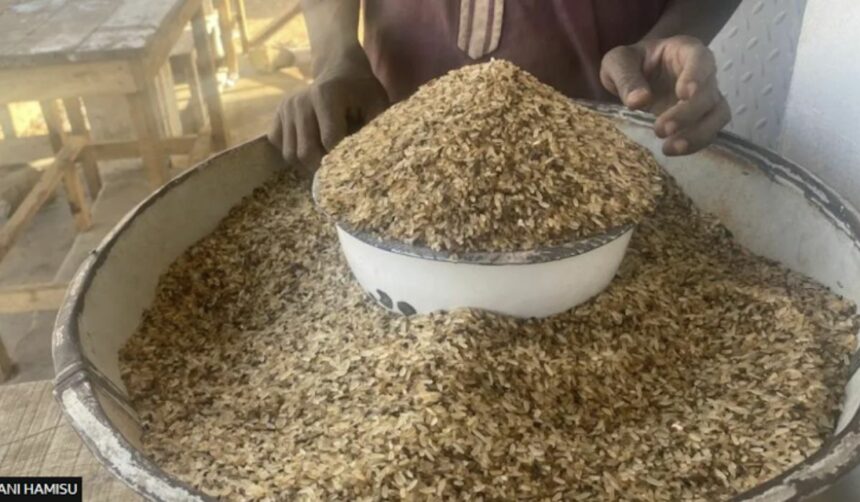As the cost of living continues to surge in Nigeria, particularly in the face of unprecedented inflation and economic challenges, many in northern Nigeria are turning to unconventional rice grains known as “afafata” to make ends meet.
These rice grains are typically rejected by millers after processing or sold to farmers but have become a viable option for individuals and families facing economic hardships.
“Afafata,” meaning “battling” in the Hausa language, is characterized by broken, dirty, and tough grains.
Despite its challenging nature, the lower price of afafata has made it more attractive to consumers, especially those with limited financial resources, according to the BBC.
The economic strain in Nigeria, influenced by factors such as the removal of fuel subsidies, currency devaluation, and global pressures, has led to soaring prices of essential commodities, including rice.
The standard 50kg bag of rice, crucial for feeding households, has experienced a more than 70% price increase since the middle of the previous year, exceeding the monthly income of many Nigerians.
As a result, families in the north are opting for afafata, which is more affordable, to cope with the rising cost of living.
While afafata is challenging to cook and eat due to its hardness, consumers are adapting to ensure they can afford one of the country’s staple foods.
In some cases, families spend hours removing stones and dirt from the rice before cooking.
Market sellers also confirmed they have noticed a surge in demand for afafata, as people seek cost-effective alternatives to traditional rice.
The Nigerian government has attempted to address the situation by distributing over 100 tonnes of grains like rice, millet, and maize in the hopes of mitigating the effects of inflation.
However, challenges persist, and unconventional rice varieties like afafata reflect the creative ways people are adapting to economic hardships in the country.










